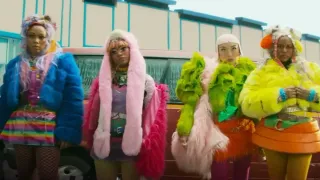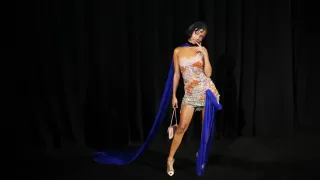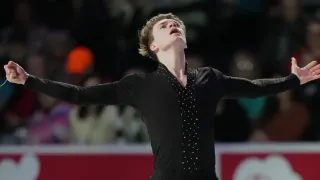
October 2, 2025
Giant Northern California Corn Maze Lets Visitors Enjoy Getting Lost
Haven Daley READ TIME: 2 MIN.
The owners of a giant Northern California corn maze once crowned the world's largest want visitors to remember that there is fun in getting lost.
“It is confusing. It’s exciting, and in a world of GPS and constant signage, you always know where you are, where you’re going," said Tayler Cooley, whose family owns Cool Patch Pumpkins. “When you’re in the corn, everything looks the same until you pop up on a bridge and you’re like, ‘Oh wait, I’m all the way over here. I thought I was over there.’”
The pumpkin patch and corn maze along Interstate 80 between Sacramento and San Francisco are open once again for the fall season through Halloween. Back in 2007 and again in 2014, Cool Patch Pumpkins earned a spot in the Guinness Book of World Records as the world’s largest corn maze.
The maze — spread out over 40 acres (16.2 hectares) — typically takes at least 45 minutes to complete and features five different bridges that allow maze-goers to rise above the stalks. It is also known for the elaborate designs the team creates in the maze that can be seen from overhead. This year's maze celebrates farmers. Previous seasons honored veterans and first responders with giant murals included in the maze design.
“Everything is done by hand,” Cooley said. “We want to communicate something fun and exciting, and then we build our pathways around that.”
On a recent afternoon, visitors from near and far wound their way through the maze.
“I have no sense of direction, and we could spend all day here. That’s fine. We have water. We’ll survive, three days,” said Ryan Moore, who was visiting from Hawaii.
Likewise, Shelley Tang from Redwood City, California, joked there is always corn to eat if they get lost.
“My children have a better sense of direction than me, so I’ll be following them,” she said.
A corn maze in Quebec, Canada, as well as those in Minnesota and Illinois, also boast record-breaking mazes, either by acreage or mileage.
Beyond the maze, Cool Patch features a corn bath for toddlers full of 150,000 pounds (68 kilograms) of dried corn.






